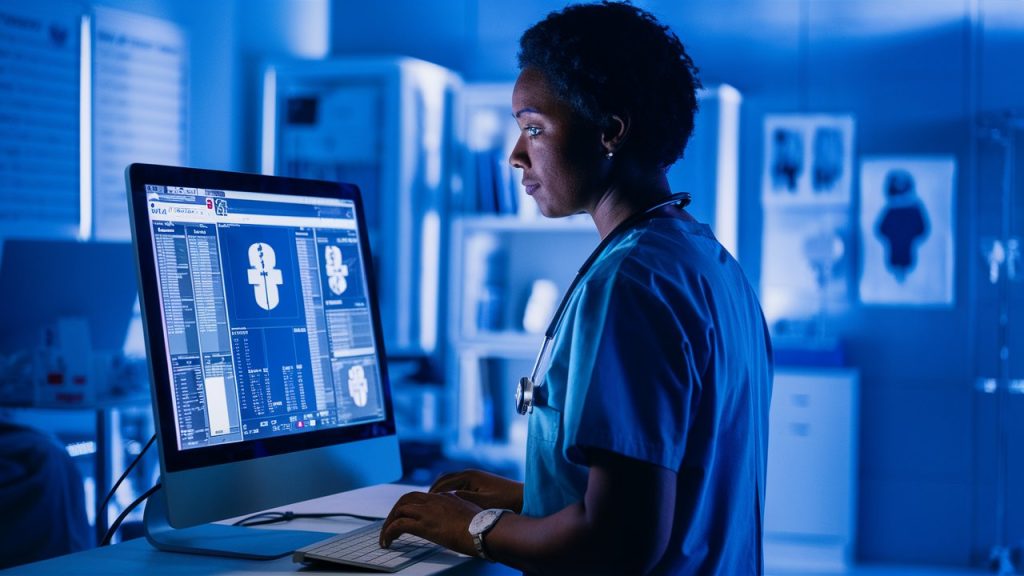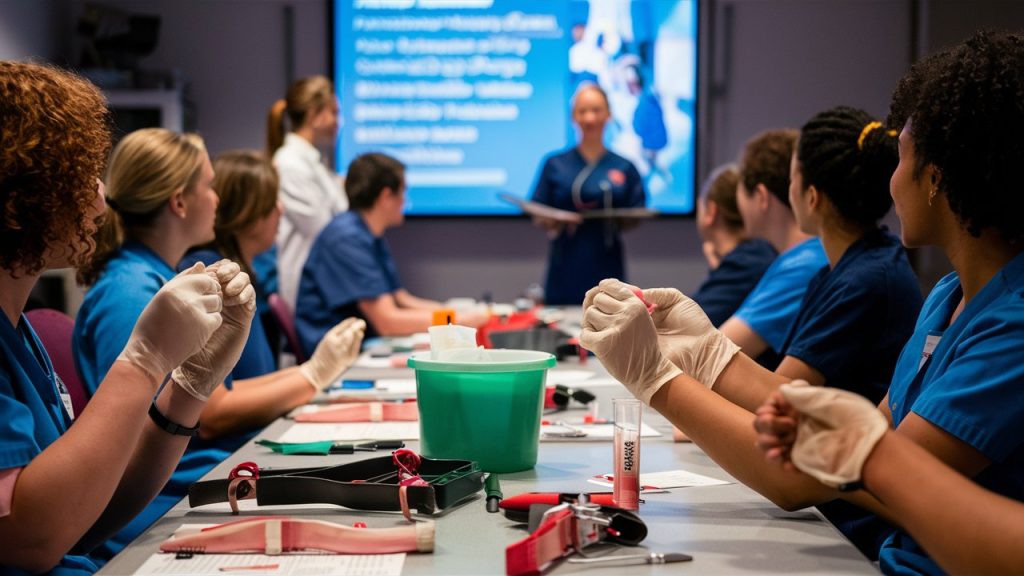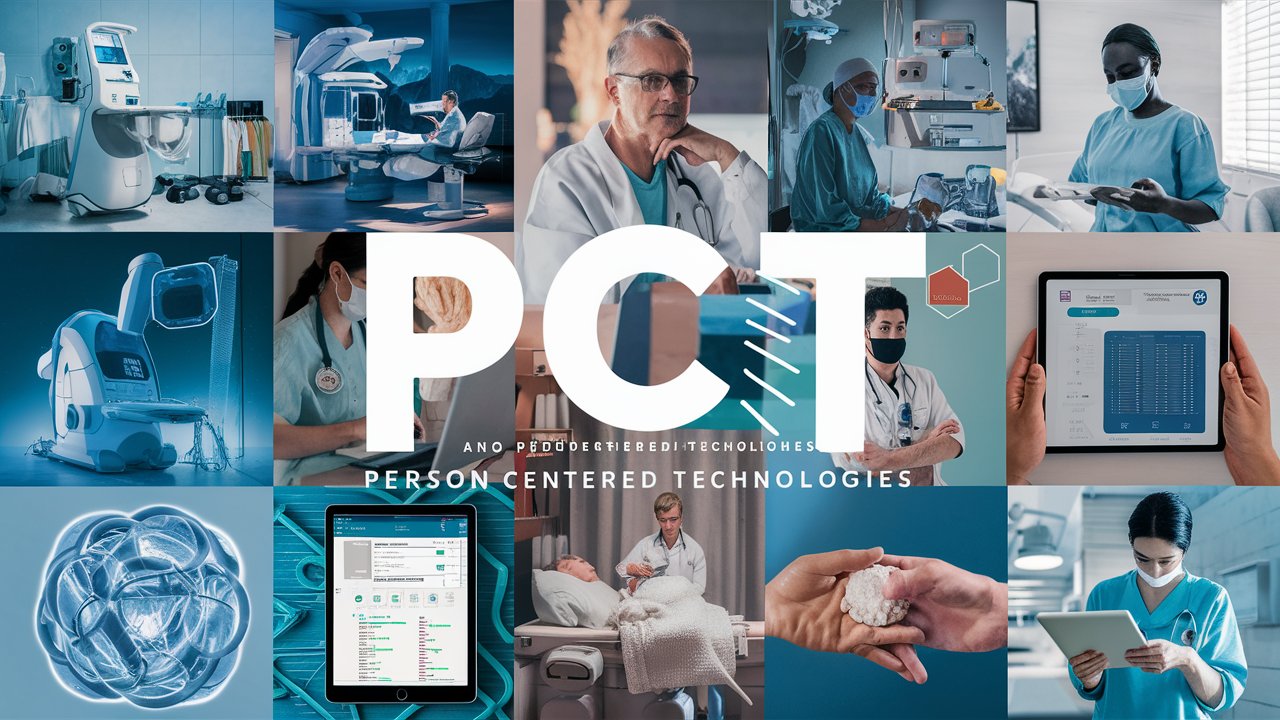Table of Contents
In the world of healthcare, many terms are used to describe various roles and functions. PCT is one such word that you may be familiar with. But what is PCT in healthcare? This post will define PCT in healthcare and discuss how it significantly improves patients’ quality of life. You’ll see why this position is so important to the medical sector at the conclusion.
What Does PCT Stand for in Healthcare?

So, what is PCT in healthcare? PCT stands for Patient Care Technician. This role involves providing essential care to patients under the supervision of nurses and doctors. What is PCT in Healthcare can work in various healthcare settings, including hospitals, nursing homes, and outpatient centers. They assist with essential patient needs such as bathing, feeding, and taking vital signs.
What Is PCT in Healthcare? In order to guarantee that patients receive the attention and care they require throughout their medical journey, PCTs are a crucial component of the healthcare team.
The Role of a Patient Care Technician
A patient care technician’s (PCT) job is important and diverse. They perform hands-on tasks that directly impact the comfort and well-being of patients. The following are typical tasks that a PCT may perform:
- Obtaining vital signs: PCTs are frequently in charge of taking a patient’s temperature, heart rate, and blood pressure.
- Assisting with mobility: They help patients move, whether that means helping them walk, transferring them from beds to wheelchairs, or assisting with physical therapy exercises.
- Personal hygiene assistance: PCTs provide help with daily hygiene tasks like bathing, dressing, and grooming.
- Feeding sick people: They make sure patients who require assistance eating get the right nourishment.
Each of these tasks may seem simple, but they make a massive difference in the day-to-day experience of patients. PCTs are often the ones who spend the most time with patients, which allows them to build a strong rapport.
How PCTs Support Nurses and Doctors
PCTs play an essential role in supporting nurses and doctors. PCTs perform a lot of the more mundane duties for nurses, freeing them up to concentrate on more complicated patient requirements. For doctors, What Is PCT in Healthcare can provide valuable information through the vital signs they gather, which helps doctors make informed decisions about patient care.
By acting as the hands and eyes of nurses and doctors, What Is PCT in Healthcare, it ensure that the healthcare team runs smoothly and patients are well cared for.
Also read: El Camino Health New Grad RN Program: Empower Your Nursing Journey
The Skills Needed to Be a Successful PCT
Becoming a Patient Care Technician requires a unique set of skills. PCTs must not only be well-versed in the fundamentals of medicine, but also have excellent people skills. Here are some key traits that make a successful PCT:
- Compassion: PCTs work directly with patients who may be in pain, anxious, or vulnerable. Being compassionate is essential to providing quality care.
- Attention to detail: Whether taking vital signs or assisting with daily tasks, attention to detail ensures that nothing is missed.
- Communication skills: PCTs need to communicate effectively with patients, nurses, and doctors. They must be able to relay information clearly and accurately.
- Physical stamina: This role requires physical effort, such as lifting patients and standing for long periods.
These abilities assist What Is PCT in Healthcare not only carry out their duties effectively but also foster a relationship of trust with patients and other members of the healthcare team.
The Impact of PCTs on Patient Outcomes
A Patient Care Technician can have a significant impact on a patient’s overall experience and outcome. By assisting with daily activities and ensuring patients are comfortable, PCTs help reduce stress and improve recovery times. They provide emotional support as well, offering a comforting presence during difficult times.
In addition, What Is PCT in Healthcare, PCT play a crucial role in identifying early warning signs of medical issues. PCTs help ensure prompt medical treatments by regularly monitoring patients and informing nurses or doctors of any changes in their condition.
A PCT’s Day in the Life
To understand what is PCT in healthcare, it’s helpful to look at a typical day in the life of a Patient Care Technician. A PCT’s day can vary depending on the type of facility they work in, but here’s a snapshot of everyday activities:
- Morning rounds: PCTs begin their day by checking in on patients, taking vital signs, and assisting with breakfast.
- Patient attention: PCTs assist patients with personal care duties all day long, such as showering and changing positions in bed.
- Supporting treatments: They assist nurses and doctors by helping to prepare patients for tests or procedures.
- Documentation: Keeping accurate records is an integral part of a PCT’s job, ensuring that patient data is up-to-date for the medical team.
By supporting patients during their medical journeys, PCTs are aware that they have had a significant positive influence on patients’ lives.
Training and Certification for PCTs

To become a Patient Care Technician, individuals need specialized training and certification. Many PCT programs take about one year to complete and include both classroom instruction and hands-on experience. Subjects covered in these programs include basic medical knowledge, anatomy, and patient care techniques.
After completing a program, aspiring PCTs must pass a certification exam to become licensed to work in healthcare settings. Continuing education is also essential, as it ensures that PCTs stay up-to-date with the latest medical practices and patient care techniques.
The Future of Patient Care Technicians in Healthcare
As the healthcare industry continues to evolve, the role of Patient Care Technicians is expected to grow. With an aging population and an increasing demand for healthcare services, PCTs will continue to be an essential part of the healthcare team. Their hands-on care and ability to support nurses and doctors make them an irreplaceable part of patient care.
In addition, advancements in medical technology and techniques may open up new opportunities for PCTs, allowing them to take on more responsibilities and further contribute to patient outcomes.
In sum, what is PCT in healthcare? A Patient Care Technician is a vital member of the healthcare team, providing direct patient care, supporting nurses and doctors, and helping to ensure positive patient outcomes. what is PCT in healthcare? Their compassionate care and hands-on assistance make them an indispensable part of the medical field.




